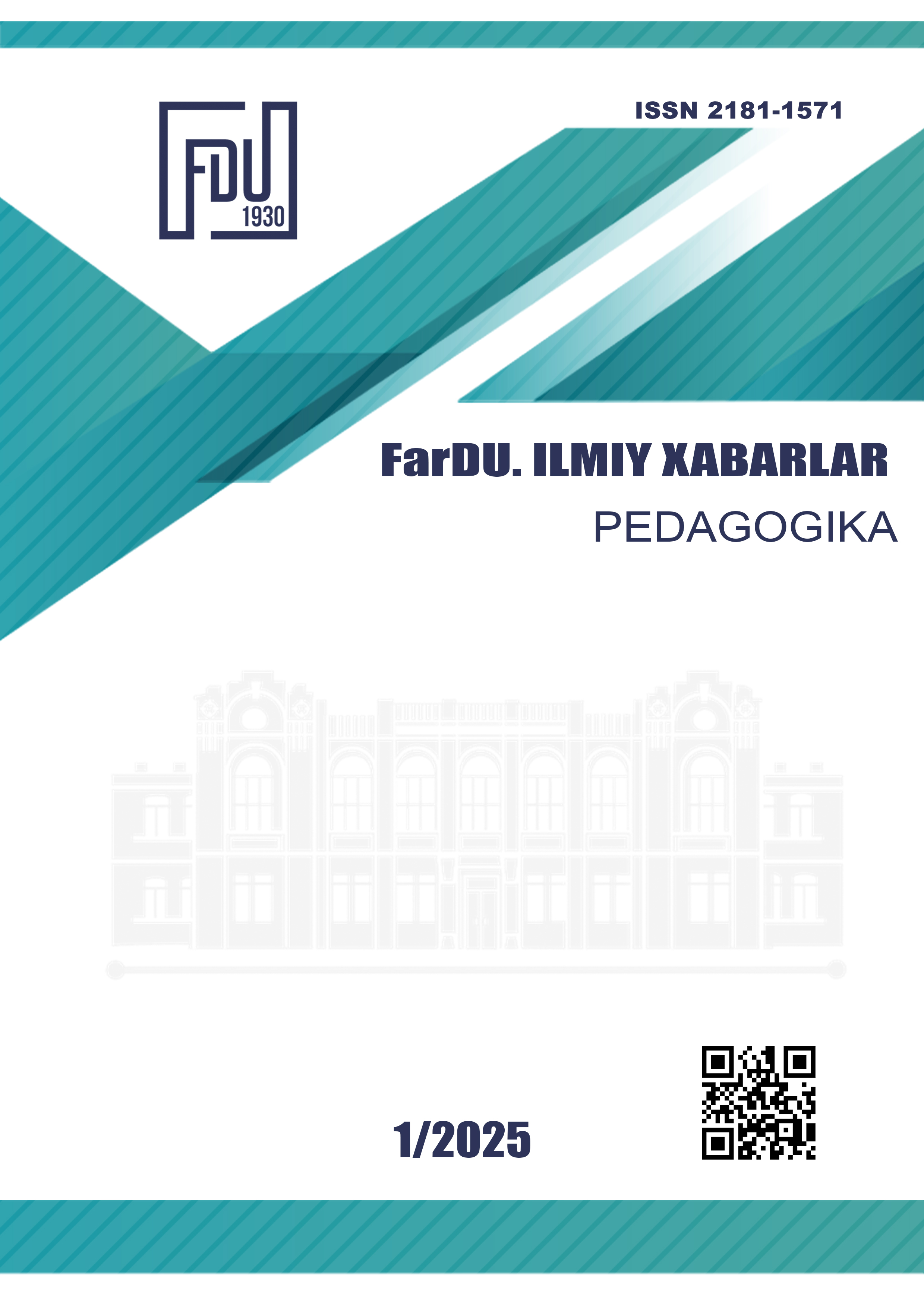THE EFFECT OF INTEGRATING LITERATURE INTO SECOND LANGUAGE CLASSROOMS ON STUDENT ENGAGEMENT IN HIGHER EDUCATION INSTITUTIONS
Keywords:
Key words: second language learning, student engagement, literature integration, higher education, cognitive engagement, emotional ment, language teaching.Abstract
This article explores the impact of integrating literature into second language (L2) classrooms on student engagement in higher education institutions. A review of existing literature reveals that the inclusion of literary texts enhances cognitive, emotional, and social engagement, fostering a more holistic learning experience.
References
Afzali, Z., & Izadpanah, S. (2021). The effect of the flipped classroom model on Iranian English foreign language learners: Engagement and motivation in English language grammar. Cogent Education, 8(1), 1870801.
Hiver, P., Al-Hoorie, A. H., Vitta, J. P., & Wu, J. (2024). Engagement in language learning: A systematic review of 20 years of research methods and definitions. Language teaching research, 28(1), 201-230.
Li, Z., & Li, J. (2022). Using the flipped classroom to promote learner engagement for the sustainable development of language skills: A mixed-methods study. Sustainability, 14(10), 5983.
Mihai, M., Albert, C. N., Mihai, V. C., & Dumitras, D. E. (2022). Emotional and social engagement in the English language classroom for higher education students in the COVID-19 online context. Sustainability, 14(8), 4527.
Downloads
Published
Issue
Section
License
Copyright (c) 2025 Scientific journal of the Fergana State University

This work is licensed under a Creative Commons Attribution-NonCommercial-NoDerivatives 4.0 International License.
How to Cite
Most read articles by the same author(s)
- , , TARGETED PEDAGOGICAL SYSTEM OF DEVELOPING TOLERANCE SKILLS IN PRIMARY CLASS STUDENTS DURING THE EDUCATIONAL PROCESS , Scientific journal of the Fergana State University: No. 6 (2023): FarDU ilmiy xabarlari jurnali (Ijtimoy gumanitar fanlar)
- , , GENDER EQUALITY ISSUES IN INCREASING THE SOCIAL ACTIVITY OF WOMEN IN NEW UZBEKISTAN , Scientific journal of the Fergana State University: No. 2 (2023): Scientific journal of the Fergana State University (Social humanities sciences)
- Gafurova Nodira Ravshanovna, Xomidova O‘lmasxon Ikromjon qizi, LINGUISTIC AND CULTURAL ANALYSIS OF LEXEMES EXPRESSING TRADITION IN ENGLISH AND UZBEK LANGUAGES , Scientific journal of the Fergana State University: No. 3 (2024): Scientific journal of the Fergana State University. Application set (Social humanities sciences)
- , THE EXPRESSION AND SPECIFICITY OF NEOLOGISMS IN TRANSLATION , Scientific journal of the Fergana State University: No. 1 (2024): Scientific journal of the Fergana State University (Social humanities sciences)
- Rasulova Dilnoza Shavkatovna, Gafurova Nodira Ravshanovna, GENDER STUDY OF FORMS OF REFERENCES IN ENGLISH LANGUAGES , Scientific journal of the Fergana State University: No. 3 (2024): Scientific journal of the Fergana State University. Application set (Social humanities sciences)
- , SPECIFIC CHARACTERISTICS OF WORDS AND NEOLOGISMS IN UZBEKI AND ENGLISH LANGUAGES , Scientific journal of the Fergana State University: No. 1 (2024): Scientific journal of the Fergana State University (Social humanities sciences)
- Gafurova Nodira Ravshanovna, THE IMPACT OF ONLINE LEARNING PLATFORMS ON SCHOOL EDUCATION , Scientific journal of the Fergana State University: No. 1 (2025): FarDU ilmiy xabarlari jurnali (PEDAGOGIKA)
- Gafurova Nodira Ravshanovna, ADVANCED MNEMONIC TECHNIQUES FOR STUDENTS IN LANGUAGE COURSES , Scientific journal of the Fergana State University: No. 1 (2025): FarDU ilmiy xabarlari jurnali (PEDAGOGIKA)
- Gafurova Nodira Ravshanovna, TEACHING ENGLISH THROUGH FILM: A CONTEXTUAL APPROACH TO LANGUAGE LEARNING , Scientific journal of the Fergana State University: No. 1 (2025): FarDU ilmiy xabarlari jurnali (PEDAGOGIKA)
- Gafurova Nodira Ravshanovna, THE IMPACT OF CREATIVE WRITING EXERCISES ON LANGUAGE PROFICIENCY AND SELF-EXPRESSION , Scientific journal of the Fergana State University: No. 1 (2025): FarDU ilmiy xabarlari jurnali (PEDAGOGIKA)

